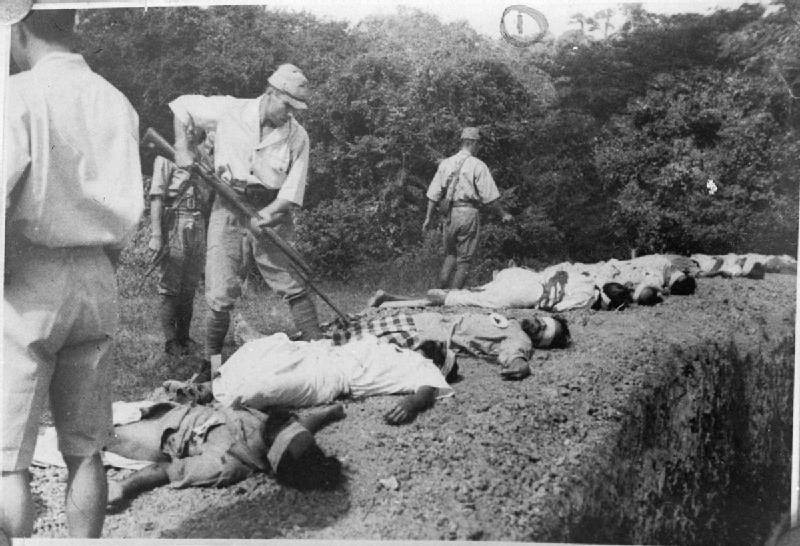by Liz Bernier for the Sarnia Observer
(2011) Bill Gunter was 19 years old when he was captured by Japanese troops.
It was 1941, and Gunter had only been a member of a British Air Force ground unit for a few months. Instead of fighting in the Second World War, he was taken and imprisoned in a forced labour camp. “I was in these awful jails that they had for the worst kind of criminal,” he recalls. “We were just jammed into cells. The only reason they didn’t kill all the prisoners is because they needed people for slave labour.”
Gunter and his fellow prisoners had to survive on a diet of maggot-infested rice and gruel while engaged in brutal physical labour. “We lost a lot of weight very quickly, and we caught all kinds of diseases,” he said. “Everybody got desperately ill, and we were still required to work.”
Many died, and those left behind were losing hope. “There seemed to be no end to it,
Gunter said. “We had no way of knowing how the rest of the war was going, so we had nothing worthwhile to hang on to.
Gunter spent three and a half years as a POW before he was liberated by Allied forces in September of 1945. He returned to England with his best friend Charles, a fellow POW whom he’d met in the camps. It was in England that he met and married Charles’ sister, Thelma.
But Gunter was still haunted by his time as a POW, never forgetting the brutalities he suffered at the hands of the Japanese troops. He joined Britain’s Far East POW’s Association where he met other former prisoners with similar sentiments. “I never did meet a member who didn’t hate the Japanese wholeheartedly,” he said.
But in 2002, Gunter was offered the chance to go on a reconciliation pilgrimage to Japan. The trip was organized by Agape, an organization founded by Keiko Holmes, that seeks to reconcile POWs with the Japanese people. Gunter joined a party of 20 people, including other ex-POWs, their wives, and orphans of POWs. “We went with trepidation, because our feelings were so intense,” he said. “We hated them so much.”
But soon, things changed. “They were so kind to us, so wonderful to us that even those who had the greatest hatred were overcome by the treatment we got,” he said. “It’s impossible to describe the effect it had.”
When the Japanese government offered an apology earlier this month for wartime atrocities, Gunter had mixed feelings. “I was glad that it happened,” he said. ‘It’s a huge step on their part.” But the late apology meant little compared to the graciousness of the Japanese people, he said.
Now 89 years old, Gunter has two daughters, five grandchildren, and three great-grandchildren – with one on the way. “We’re creating a tribe here,” he said with a laugh.
Though Gunter’s experience as a POW will always stay with him, the pilgrimage to Japan helped him to make peace with the past, he said.
“You can’t forgive or forget. But what you can do is understand that these things are in the past.”


